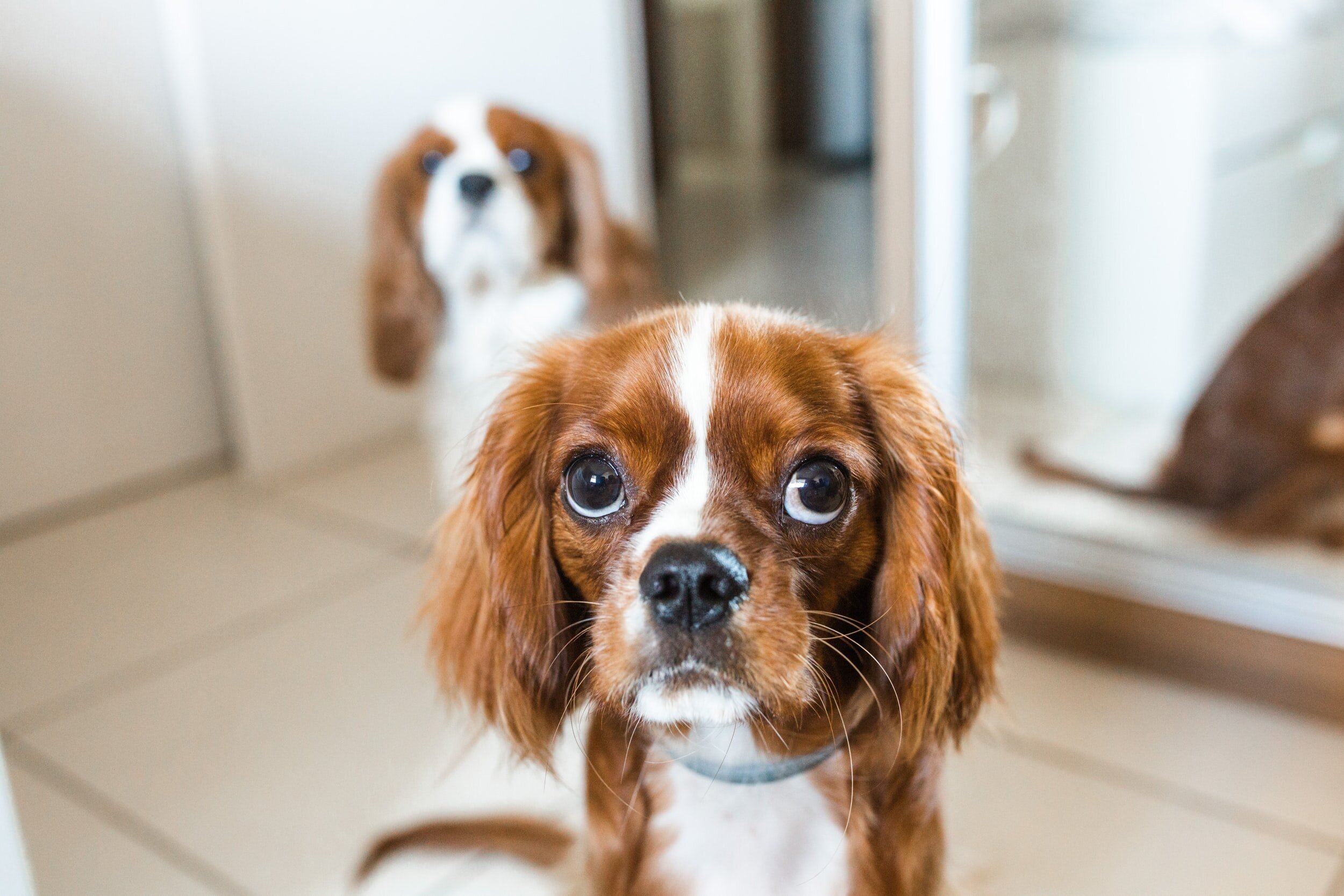Behaviour Advice: How to prevent and reduce seperation anxiety
Clingliness can frustrate many pet parents. If your dog is always following you around, doesn’t leave your side and perhaps you even see their nose pop round the corner of the door whilst your on the loo. Yes to any of those, means you have a clingy, needy, and attention seeking dog on your hands.
Now, don’t get me wrong, a dog that wants affection from you can be endearing, but when you can’t leave the room, or have intimiate time with your partner - it can be really annoying!
Clinginess vs. Seperation Anxiety
Clinginess can be a sign of a much bigger behaviour problem: seperation anxiety. What seperates the two is that clingy dogs want to be around you, all the time, when you’re at home. But, they don’t panic when you’re not there.
How does your dog react when they are away from you?
A clingy dog becomes a problem when it snowballs to high anxiety. Typical symptoms include pacing, chewing, defacting and other none calm behaviours.
A tad behaviourist can help with behavioural modification to reduce anxiety, in both the dog and owner.
Managing yourself around your clingy pooch
Clinginess is a learned behaviour. So if your dog is displaying signs of being extremeley needy, then unfortunately, it’s been caused by you.
But don’t threat! There is an easy solution to gently cutting the apron strings - which we will advise on in the next section.
Looking back on your earlier days when your dog was just a pup, or during the first few weeks your new dog spent with you, did you give them attention constantly?
When they pawed at your leg for a stroke or whined at you from the other side of the door - did you give in?
Giving puppies constant attention when they’re in the developmental stages can encourage them to become fearful of being alone.
A bored dog, will become a clingy dog. You’ll want to make sure that the mind is drained of excess energy to help your dog feel like they want to lay down, snooze and rest (away from you).
An older or ill dog with loss of vision or hearing can of course become clingy because their world is diminishing and turning completely unfamiliar.
Try to manage your own energy around your canine, because this is key.
If you’re anxious, tense or stressed, your dog will imitate this energy.
Preventions for the needy canine companion
Go back to basics and teach your dog to be independent. Here are our top tips for reducing that needy behaviour:
Increase daily exercise: a tired dog, is a happy one. A good run off lead, or on a training line will tire your dog out, and minimise the amount they follow you around (because they’ll want to snooze instead).
Designate a special space: your dog should have atleast one bed (or more, or perhaps even a crate), that you are always inviting them to go and rest on. After that very long and tiring walk, let your dog settle on their special space. Give them a treat, chew or bone to reward them.
Put a stop to the unwanted noises and behaviours: we live in a society where some people will tell you that it’s not okay to tell your dog “Quiet” or “Off”, but at tad we absolutely recommend that you give your dog rules and boundaries. If your dog is whining or barking say “Quiet!” and if necessary use a pet corrector or water sprayer to add an extra level of assertiveness.
Desensitize your dog to your movements: dogs can pick up on when we are about to stand up and go to the kitchen for another glass of wine, or when you put on shoes and pick up your keys to leave the house. Desensitation in a nutshell means normalisizing what you do. Do the action (i.e. picking up keys), but without the intended after next stage. You’ll pick up your keys, walk to another room and put them down again. Eventually your canine will learn that your movements don’t warrant any attention. Removing the trigger.
Help minimise the anxiety by encouraging your dog to just relax and surrender to the situation instead of redirecting that anxiety to a toy, food or by pacing.
If you have more than one dog in the home, ensure you are watching the body language of all the dogs. An unsure dog will feed off other nervous dogs.
Your dog will thank you for being natural and understanding.
Jessie - @theanimaldays



